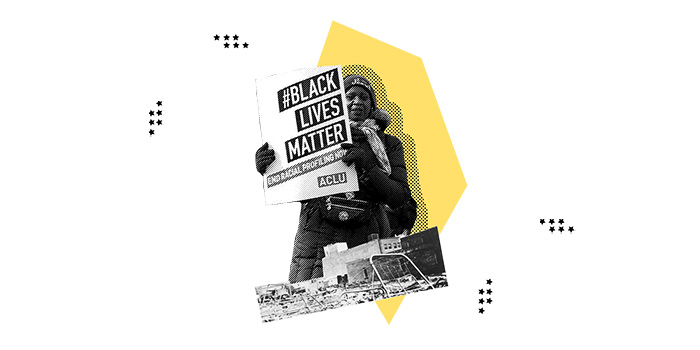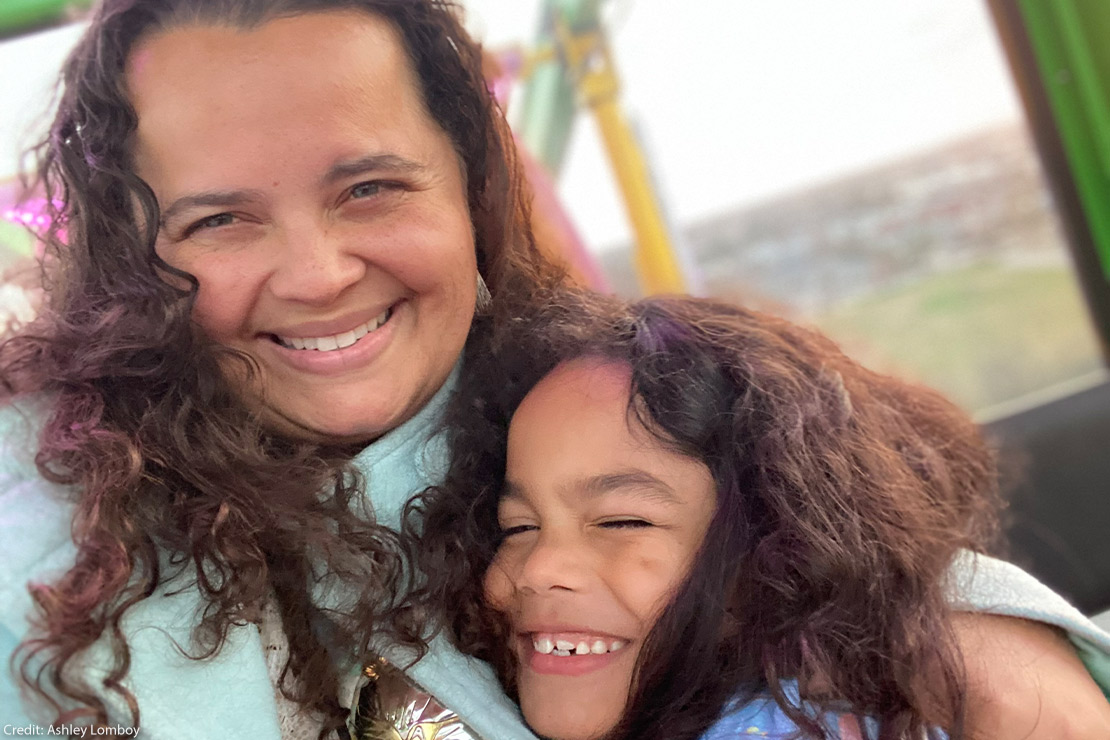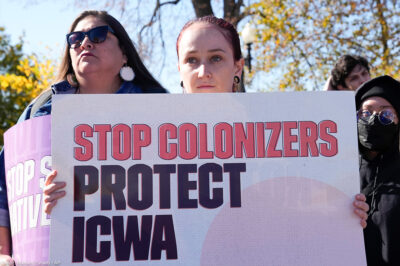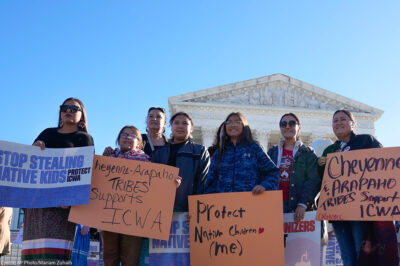Indigenous Justice
The ACLU is committed to defending tribal sovereignty and the rights of Indigenous peoples to be free from discrimination and governmental abuse of power.

What you need to know
Stay informed about our latest work in Indigenous Justice.
By completing this form, I agree to receive occasional emails per the terms of the ACLU's privacy statement.
The Latest
Explore More
What's at Stake
Indigenous peoples and their governments have suffered discrimination and injustice at the hands of the United States since the country’s founding, yet contemporary civil rights discussions all too often ignore their rights. Indigenous communities are among the most impoverished in the nation, and the stigma of past discrimination regularly rears its head in the spheres of public health, education, and juvenile justice.
The ACLU has filed important class-action lawsuits challenging discrimination against Indigenous people in education, voting, and the child welfare system. In 1978, Congress enacted the Indian Child Welfare Act (ICWA), a federal law designed to protect Indigenous families from “abusive child welfare practices that resulted in the separation of large numbers of Indian children from their families and tribes through adoption or foster care placement.” In 2013 the ACLU used ICWA to challenge pervasive discrimination and the lack of due process afforded to Indigenous families in emergency child custody proceedings.
In 2022, the ACLU, along with 12 ACLU state affiliates and represented by Cooley LLP, filed an amicus brief with the Supreme Court urging the court to uphold the constitutionality of ICWA, which was at risk of being gutted by the court. In 2023, the Supreme Court issued a decision in Haaland v. Brackeen, delivering a landmark victory for tribal sovereignty, Native children, Native families, and the future of Native people. The ACLU is now urging states to take action and introduce or strengthen existing state-level ICWA protections. We are committed to continue defending tribal sovereignty and the rights of Indigenous peoples to be free from discrimination and governmental abuse of power.
Indigenous peoples and their governments have suffered discrimination and injustice at the hands of the United States since the country’s founding, yet contemporary civil rights discussions all too often ignore their rights. Indigenous communities are among the most impoverished in the nation, and the stigma of past discrimination regularly rears its head in the spheres of public health, education, and juvenile justice.
The ACLU has filed important class-action lawsuits challenging discrimination against Indigenous people in education, voting, and the child welfare system. In 1978, Congress enacted the Indian Child Welfare Act (ICWA), a federal law designed to protect Indigenous families from “abusive child welfare practices that resulted in the separation of large numbers of Indian children from their families and tribes through adoption or foster care placement.” In 2013 the ACLU used ICWA to challenge pervasive discrimination and the lack of due process afforded to Indigenous families in emergency child custody proceedings.
In 2022, the ACLU, along with 12 ACLU state affiliates and represented by Cooley LLP, filed an amicus brief with the Supreme Court urging the court to uphold the constitutionality of ICWA, which was at risk of being gutted by the court. In 2023, the Supreme Court issued a decision in Haaland v. Brackeen, delivering a landmark victory for tribal sovereignty, Native children, Native families, and the future of Native people. The ACLU is now urging states to take action and introduce or strengthen existing state-level ICWA protections. We are committed to continue defending tribal sovereignty and the rights of Indigenous peoples to be free from discrimination and governmental abuse of power.





